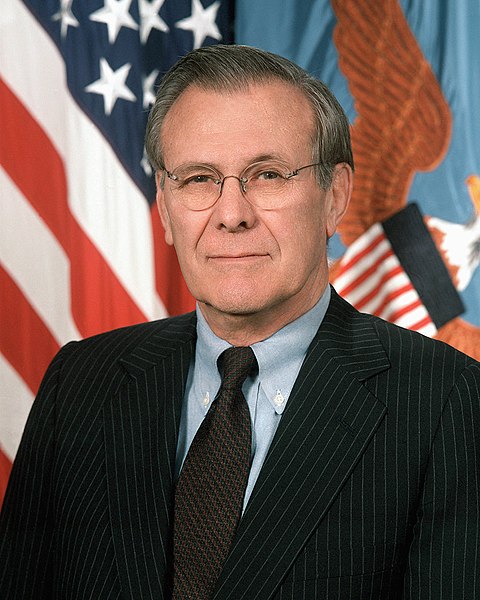
What Life was like before The WWW?
Saturday, December 30, 2006
We’re so used to digital lives these days. Internet plays a very important role in our daily lives. Some of us just can’t live without it. Especially “YOU”, TIME Magazine “Person of the Year”!
Ever imagine what will happen to our lives if there is no internet. We’re too contented to what we’ve got right now and somehow, fail to appreciate it. When we’re too used to this kind of lives, here is a reminder.
Just imagine a life with no instant news updates, no emails, no chatting, no blogging, no online games, no YouTube, no MySpace, no Friendster, no Googling around. For Asians, there is no need to imagine as we are now experiencing.
Millions of people in Asia were given a clear reminder of what life was like before the World Wide Web (www) on Wednesday, December 27, 2006. Internet users were a frustrated lot on these few days. Some could not access website while others found it extremely slow. I was among the frustrated one.
When disaster strikes …
 December 29, 2006 [Friday] - Two major earthquakes struck southern Taiwan on Tuesday, Dec 26,2006 triggering fears of destructive waves as Asia marked the second anniversary of the Indian Ocean tsunami. It was the same throughout most of Asia as telecommunications lines were disrupted after undersea cables were damaged by an earthquake in Taiwan. According to the news, International telephone calls to countries such as Japan, Taiwan, China, Hong Kong, Korea and the United States were also affected.
December 29, 2006 [Friday] - Two major earthquakes struck southern Taiwan on Tuesday, Dec 26,2006 triggering fears of destructive waves as Asia marked the second anniversary of the Indian Ocean tsunami. It was the same throughout most of Asia as telecommunications lines were disrupted after undersea cables were damaged by an earthquake in Taiwan. According to the news, International telephone calls to countries such as Japan, Taiwan, China, Hong Kong, Korea and the United States were also affected.For the day-to-day Internet user, the interruption in services meant that work almost came to a standstill. 26 telecommunication companies were affected.
Millions of people across Asia suffered a second straight day without full Internet service yesterday as telecoms operators raced to counter predictions of weeks without Web access. Many companies operation came to a halt as the disaster hindered financial transactions, particularly in the currency market. International telephone traffic was restricted from some countries and Internet access slowed to a crawl. Business is poor at cybercafés as many online users, frustrated by non-existent or slow connections to the Internet, stopped patronizing them. Nothing much can be done but to wait.
 A resident looks around her collapsed house after a strong earthquake shook Taiwan on Tuesday in southern Pingtung county on December 27, 2006. (Frank Lin/Reuters)
A resident looks around her collapsed house after a strong earthquake shook Taiwan on Tuesday in southern Pingtung county on December 27, 2006. (Frank Lin/Reuters)Why this is happening?
The earthquake – of a magnitude 7.1 according to the US Geological Survey – struck off Taiwan’s southern coast at 1226 GMT on Tuesday, killing two people. The earthquake damaged the APCN2 (Asia Pacific Cable Network 2) submarine cable between Shantou, China and Tanshui, Taiwan, and between Lantau, HongKong and Chongming, China.
Analysts said the disruption highlighted the fact that most of the region’s cable networks are running in the same direction, along earthquake-prone geographic lines.
 Graphic showing major undersea communication lines that connect the East Asian region. Millions of frustrated Internet users across Asia are slowly regaining access to overseas websites, three days after an earthquake off the coast of Taiwan snapped several vital undersea cables.(AFP)
Graphic showing major undersea communication lines that connect the East Asian region. Millions of frustrated Internet users across Asia are slowly regaining access to overseas websites, three days after an earthquake off the coast of Taiwan snapped several vital undersea cables.(AFP)Lessons to Be Learned
The internet bust in 2001 had hit expensive plans by various companies to lay undersea cables along new paths that were less likely to be affected by earthquakes.
After this incident, People will start to say we can’t let this happen again.
“The issue here is parallelism. You’re really got to have multiple paths. You can’t lay all cables in the same place.”
Frank Dzubeck (President of Communications Networks Architects)
Headline News around Asia
In Malaysia,
Internet users in Malaysia and other parts of Asia might experience some delay when assessing content and websites hosted outside of Malaysia, especially in the U.S, Japan, China, Taiwan, Korea and Europe.
“There are no changes to the speed, still experiencing slower access to oversea sites.”
TMNet, broadband service provider has diverted traffic through other back-up links to reduce the traffic congestion. In a statement, Telecom Malaysia said it was working closely to undertake repair works so that telephone services to affected countries would be restored. However, it said it was unable to determine when the services could be restored. All Internet service providers in the region were affected as they were linked with the undersea data cables off the coast of Taiwan.
According to Maxis, Malaysia phone company, some customers had difficulty making international calls to the US, Canada, Korea, Japan and Taiwan. Customers roaming in these countries also had problems calling home.
In South Korea,
KT Corp, South Korea’s top fixed-line and broadband service provider, said six submarine cables were knocked out by Tuesday night’s earthquakes. 36 foreign bank branches in South Korea had been affected. Citibank Korea, which lost almost all of its international services on Wednesday such as Intranet and phone banking, restored most services later in the day.
In Japan,
Some disruption was also reported in the important Tokyo currency market but the EBS system that handles much dollar/yen trading appeared to be working. KDDI Corp., the state’s second largest telecoms company, said communications along submarine cables out of Japan went through Taiwan before reaching Southeast Asian countries, which was leading to disruption, but there were alternative lines.
In India,
Back offices and call centres experienced some difficulties, but industry officials said the full extent of the problem would not be known until later in the day when data and voice traffic peaked during European and US business hours.
In China,
Financial markets worked normally but China Telecommunications Group, the country’s biggest fixed-line telephone operator and parent of China Telecom Corp, said the Internet had been badly disrupted.
In Philippines,
Philippine Long Distance Telephone Co said its Internet service was intermittent and international phone calls had been affected. Rival Globe Telecom said “the entire country’s telecom services to the United States were disrupted”.
In Singapore,
Singapore Telecommunications (SingTel), Southeast Asia’s top phone company, said traffic was being diverted and repair work was in progress. Submarine cables linking to Europe and the US are not affected.
When you’re reading this, I believe the Web access has been restored partially or completely. Well, this is a great reminder for us. Now, I’m appreciating every single second with the Internet.
 I
I  I
I 
Labels: disaster, discussion, internet, person of the year, technology, threat, time magazine
posted by Jason @ 3:32 PM,
,
![]()
![]()
TIME "Person of The Year" - Me?
Sunday, December 17, 2006



WHO IS NEXT IN 2006?
 YOU! Congratulations to us! Yeah, you and me! We are the Time magazine “Person of the Year” Time has decided to honor us in 2006.
YOU! Congratulations to us! Yeah, you and me! We are the Time magazine “Person of the Year” Time has decided to honor us in 2006. Time has selected million of us as the Person of the Year! The cover shows a white keyboard with a mirror for a computer screen where buyers can see their reflection.
Quotes from writers and editors
Larry McShane, Associated Press Writer
"If you choose an individual, you have to justify how that person affected millions of people. But if you choose millions of people, you don't have to justify it to anyone."
Richard Stengel, Time's managing editor
This time, Time is not focusing about conflict or great men.
“It's about the cosmic compendium of knowledge Wikipedia and the million-channel people's network YouTube and the online metropolis MySpace. It's about the many wresting power from the few and helping one another for nothing and how that will not only change the world, but also change the way the world changes.”
Lev Grossman in Cover Story
Link to TIME video: Person-Of-The-Year
Why YOU?
You made Facebook profiles
You made Second Life avatars
You reviewed books at Amazon
You recorded podcasts
You blogged
You camcordered bombing runs
You built open-source software
“Who are these people? Seriously, who actually sits down after a long day at work and says, I'm not going to watch Lost tonight. I'm going to turn on my computer and make a movie starring my pet iguana? I'm going to mash up 50 Cent's vocals with Queen's instrumentals? I'm going to blog about my state of mind or the state of the nation or the steak-frites at the new bistro down the street? Who has that time and that energy and that passion?” Lev Grossman
The answer is, you do!
Anyway, I've gone through the website, Time did cite 26 “People Who Mattered”: Just to name a few:
Kim Jong II - North Korean Dictator
Pope Benedict XVI
US President Bush
Donald Rumsfeld – US former Defense Secretary
Who will it be if not YOU?
The Magazine will most probably choose Iranian President Mahmoud Ahmadinejad.
Lastly, I think it is important to note that, it’s not the first time TIME went away from naming an actual person for its ‘Person of the Year.” For example:
1966: the 25-and under generation
1975: American women
1982: the computer was chosen!
Link to TIME video: Person-Of-The-Year
 I
I  I
I 
Labels: digital, internet, person of the year, technology, time, time magazine, who
posted by Jason @ 10:48 PM,
,
![]()
![]()
How many Websites now in the Internet?
Friday, December 15, 2006
It seems that there is endless stream of little square portals all vying for our attraction.
According to CNN, now a number of pit stops on the information super highway have apparently reached a worldwide high point. There are now 100,000,000 websites (100millions) with domain names and contact on them. 27,000,000+ (27millions) sites created just this year 2006. This is due to the blog generation when you don’t have to be a technologist or be able to create a website. In 1995, there are only 18,000.
The first webpage was a search engine, the library of congress, newspapers and ha.. porn perhaps. But then the internet gradually became a science of making money. Now, internet has been used daily for work, some recreation purposes and many can never live without an internet. The 100 million numbers may seem a little staggering, as the web continues to grow; we follow or is it the other way around?
 Save This Page
Save This PageLabels: how, internet, many, websites
posted by Jason @ 12:37 PM,
,
![]()
![]()




